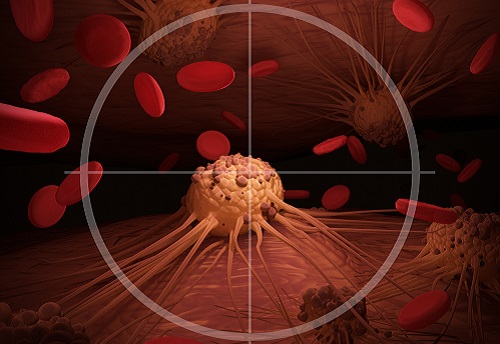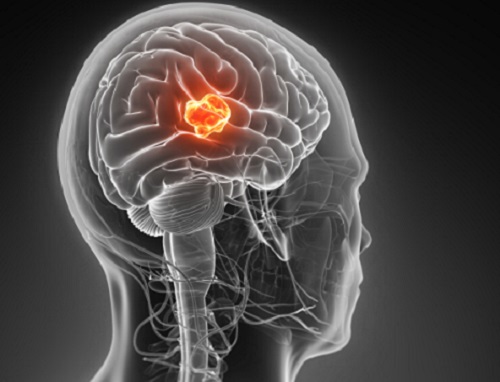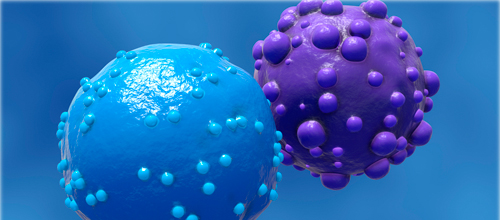January 5, 2017 (ScienceDaily.com)
Lymphoma, the most common blood cancer, is the result of the uncontrollable multiplication of lymphocytes (immune cells). B-cell lymphomas account for 85% of patients who have B-cell non-Hodgkin lymphoma and 30% of these patients are diagnosed with diffuse large B-cell lymphoma.
Diffuse large B-cell lymphoma is a very aggressive B-cell cancer that requires immediate combination treatment. The problem is that diffuse large-B cell lymphoma is a refectory disease, half of all patients relapse after standard treatments and chemotherapy treatments become no longer effective in treating the lymphoma.
The goal of the physician investigators at Moffitt Cancer Center is to bring to these unfortunate patients immune cellular therapies to combat refectory diffuse large B-cell lymphoma.
Recently approved to treat refractory disease, axicabtagene ciloeucel (KTE-C19) “is an autologous chimeric antigen receptor (CAR) T-cell therapy.” This treatment works by removing T-cells from a patient’s blood and engineering those cells to specifically target the CD19 protein which is found on the cells diseased by lymphoma. These newly targeted cells are then placed back into the patient and are capable of recognizing lymphoma cells that possess CD19 protein to target and destroy.
The phase 1 portion of the ZUMA-1 study was to assess the safety of KTE-C19 toxicity to patients with diffuse large B-cell lymphoma who were very refractory with two to four previous treatments.
Frederick L. Locke, M.D., found that KTE-C19 caused manageable toxicity after a follow-up of nine months. One out of seven patients studied had experienced “dose-limiting toxicity.”
The overall response rate was 71%. Four patients had a quick response within 1 month of receiving the treatment and 3 patients had remained in remission after one year. These exceptional results led to ZUMA-1 going forth into its second phase.




